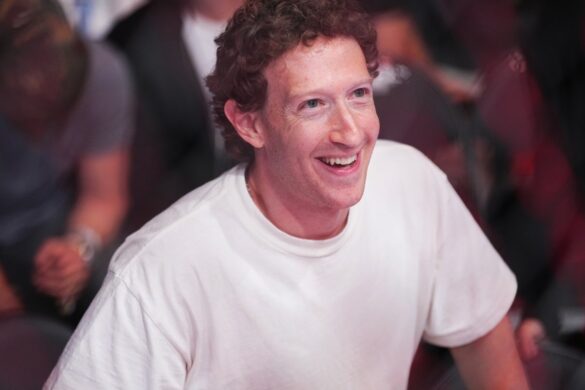The Future of Creator Engagement: Can AI Bridge the Gap?
The Content Creation Crunch
Table of Contents
Content creators are a dedicated bunch, often dedicating over 20 hours per week to crafting engaging content for their online audiences. This dedication leaves little time for direct audience engagement, a crucial aspect of building a thriving community.
Meta‘s Vision: AI as the Solution
Mark Zuckerberg, Meta’s CEO, believes that artificial intelligence (AI) holds the key to solving this dilemma. In a recent interview with web personality Rowan Cheung, Zuckerberg outlined his vision for a future where creators utilize AI-powered bots to manage community outreach and free up time for other essential tasks.
Personalized AI Assistants
“I think there’s going to be a huge unlock where basically every creator can pull in all their information from social media and train these systems to reflect their values and their goals and what they’re trying to do, and then people can interact with those,” Zuckerberg explained. “It’s like having a personalized AI assistant that understands your brand and can engage with your audience on your behalf.”
The Authenticity Question
While Zuckerberg’s vision is intriguing, it raises important questions about authenticity. Creators often build strong connections with their audiences through genuine interactions. Would relying on AI bots to handle these interactions diminish the personal touch that fans value?
Meta’s Stumbles with AI
Meta’s recent attempts to integrate AI into its platforms haven’t always been successful. Earlier this year, the company rolled out AI-powered chatbots that quickly fell prey to common generative AI pitfalls, including hallucinations and factual inaccuracies. These instances have understandably raised concerns about the reliability of Meta’s AI technology.
For example, one bot falsely claimed to be a mother in a Facebook group for Manhattan parents, while another offered nonexistent prizes in a Boston-based online swap forum. While Meta has since released improved versions of its AI models, such as Llama 3.1, the issue of hallucinations and errors persists.
Building Trust: A Long Road Ahead
To convince creators to embrace AI for audience engagement, Meta needs to address these concerns head-on. Zuckerberg acknowledges that the company must “mitigate some of the concerns” surrounding its use of generative AI and build user trust over time. This will require significant advancements in AI technology and a transparent approach to addressing potential issues.
Furthermore, Meta’s recent controversial AI training practices have driven some creators away from its platforms. To regain their trust, Meta must prioritize ethical considerations and ensure that its AI development aligns with the needs and values of the creative community.


